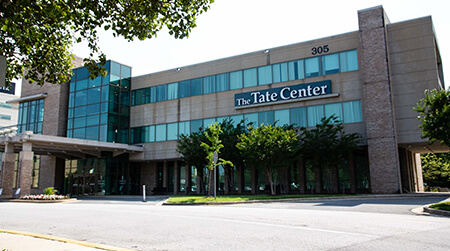


At Chesapeake Oncology Hematology Associates (COHA), we strive to offer our patients the best possible treatment of prostate cancer. Our experienced team of oncologists and healthcare providers develop personalized treatment plans for our patients depending on their cancer stage, form, and medical condition. We utilize the most advanced technology and treatments to get the best possible results.
This form of cancer only impacts males, but despite that, it's the third most common cancer in the US. However, prostate cancer is among the most treatable forms of cancer if detected early.

Prostate cancer surgery is referred to as radical prostatectomy. During the procedure, the surgeon removes the entire prostate, along with lymph nodes close to the prostate at times to analyze the spread of the disease.
This treatment uses high-energy radiation to eliminate cancer cells. Radiation therapy and surgery are two of the most common primary for prostate cancer treatment options. It offers better urinary control compared to surgery, but it has increased chances of causing bowel and bladder irritability. At COHA, we offer safe and effective radiation therapy treatment targeted towards killing cancer cells and leaving surrounding cells intact.
Chemotherapy uses drugs developed to destroy fast-growing cancer cells. Prostate cancer chemotherapy is generally used to treat patients whose cancer has returned, has metastasized, and high-risk cancer patients.
The treatment comprises surgically removing the entire prostate gland to eliminate the cancer cells and prevent the cancer from spreading.
The treatment involves targetting radiation therapy with tiny pieces of material placed in the patient's body as close to the tumor as possible. This enables doctors to target very high radiation doses straight into the tumor while minimizing radiation exposure to healthy tissue.
This is a rarely used treatment which, however, is the best treatment option for localized prostate cancer consisting of small tumors where surgery is not an option. The procedure aims to freeze and kill cancer cells by inserting a thin, long probe into the tumor. The treatment needs intensive follow-up sessions with imaging procedures to ensure that the tumor is completely eliminated.
Immunotherapy uses a patient's immune system to fight cancer. Prostate cancer patients may be given a form of immunotherapy that devises the body's immune cells in a lab to identify and combat prostate cancer. This treatment is particularly useful for patients with advanced prostate cancer who don't respond to hormone therapy.

8:00 AM ~ 4:30 PM (M-F)

8:00 AM ~ 4:30 PM (M,T,T,F)
Wednesday -
Closed

8:00 AM ~ 4:30 PM (M-F)

8:00 AM ~ 4:30 PM(M-F)
Yes, prostate cancer can be cured if it's detected and treated early. Over 90% of prostate cancer cases are detected in the early stages.
Some steps that can help prevent prostate cancer include:
Cancer treatments are not usually painful, but you may experience certain side effects depending on the treatment options used.
The prostate-specific antigen (PSA) test gauges the prostate-specific antigen levels in your blood and is chiefly used to screen for prostate cancer. PSA is a protein secreted by both noncancerous and cancerous tissues in the prostate. PSA levels are higher in prostate cancer patients and patients with any other prostate issues.
Prostate cancer is slightly unusual compared to other forms of cancer because several prostate tumors don't spread rapidly to other body parts. Certain types of prostate cancers grow at a very slow pace without causing any symptoms or issues for several years. Some cancer types may never cause any warning signs.
Age is known to be among the most common risk factors for prostate cancer. The older you are, the more you are at risk for prostate cancer. Additionally, people with a family history of prostate cancer also have an increased risk of getting it.